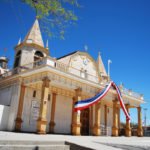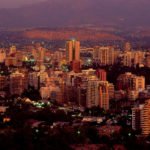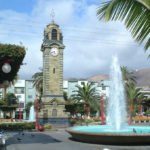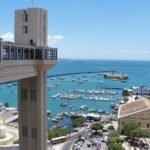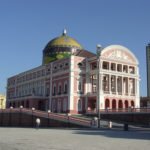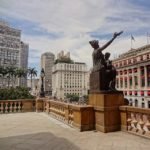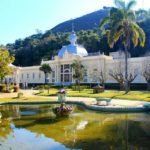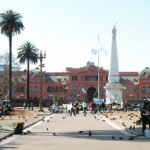| Rail Travel: |
The passenger rail network in Brazil is extremely limited and not a viable option for travelling around the country. There are, however, a number of scenic routes. Brazil has only 17,500 miles of railways compared to over one million miles of roads. |
| Religion: |
Catholicism is Brazil’s largest religion. Evangelical Protestantism, Spiritism, Afro-Brazilian religions, such as Candomblé and Umbanda, and Judaism also have significant numbers of followers. |
| Sea Travel: |
Since air travel has become so popular, there is no scheduled boat service between Brazil and the rest of the world, although some cargo lines, such as Grimaldi Freighters, do offer a limited service from Europe. Rio is one of the prime ports of call for cruise ships, especially at Carnival time. Besides Rio de Janeiro, popular ports of call in Brazil include Manaus, Belém, Fortaleza, Recife, Salvador and Vitória. |
| Telephone Service: |
Brazil has a well developed telephone network and it is relatively simple to direct dial to anywhere in Brazil or internationally. You can dial direct (DDI), which is cheaper, to most countries in the world, by first dialling 00, the long distance operator code (21 for Embratel or 23 for Intelig) and then the country’s own code followed by the area code and the number you want to contact. Should the area code start with a zero, the zero must be dropped. Therefore the number of the Embassy of Brazil in London would be dialled as 00-(21 or 23)-44-20-7399-9000.
The local telephone directories have a full list of country codes as well as the major area codes but this information is also available free of charge from the international operator on 000333. The operators speak English and also offer a free translation service in French, Japanese, German, Italian and Spanish on 000111.
If you already know the number you wish to call, but want to make the call person-to-person, use your telephone credit card, or call collect, you must first call the operator on 000111.
On 30 June 2001 there were changes to the telephone numbers in the Brazilian states of Rio de Janeiro, Espírito Santo and Pará. In Rio de Janeiro, the digit 2 has been added to numbers starting with 2, 4, 5, 6 and 7, except for the prefixes 460 and 461, which now start with 3. For example, the number 207 1234 is now 2207 1234 and the number 460 1234 is now 3460 1234. Most guide books in circulation or information in print does not yet reflect these changes.
It is now possible to use foreign mobiles within Brazil but you should first check with your service provider as to exactly what coverage to expect because it does vary from state to state and from one service provider to another. As does the cost.
To dial internationally from your mobile, you may have to follow the same procedure as a land line and choose a long distance operator. For example 00 (for international) followed by 21 (for Embratel), followed by the number of the country you wish to talk to and the full telephone number.
If you mobile phone is not compatible to work in Brazil, it is also possible to rent a handset in Brazil. This can be delivered to your hotel or picked up at the airport. |
| Time Zones: |
The parts of Brazil most popular with foreign visitors lie within the Brazilian standard time zone, three hours behind Greenwich Mean Time. The states of Amazonas, Roraima, Rondônia, Pará, Mato Grosso and Mato Grosso do Sul are a further one hour behind Brazilian standard time, while Acre is two hours behind. Fernando de Noronha and other oceanic islands are one hour ahead of Brazilian standard time.
In 1985 Brazil introduced daylight savings time. Brazilian summer time comes into effect in October and ends in early February. During this period of daylight saving time, Brazil’s clocks go forward one hour in most of the south east. This when most of the Northern Hemisphere countries, such as the UK, are putting their clocks back one hour and coming off summer time. So, from March to October, when Brazil is on normal time and the UK is on its summer time, the time difference between Rio and London will be four hours. This drops to just two hours when Brazil goes on to summer time and the UK comes off. |
| Credit Cards & Currency: |
The Brazilian monetary unit is the real (R$) (plural, reais). There are 100 centavos to the real.
Most major international credit cards are accepted in Brazil. Credit card receipts from stores and restaurants will be priced in reais although you will be billed in the currency of your own country, the official exchange rate having been taken into consideration.
The official exchange rate is published daily in the newspapers. For today’s rate, visit Bloomberg Currency Calculator.
The US dollar is by far the most widely accepted foreign currency in Brazil. There is also an extensive network of cashpoints at which UK cash cards can be used, although you should check with your bank before departure that your card can be used overseas. |















